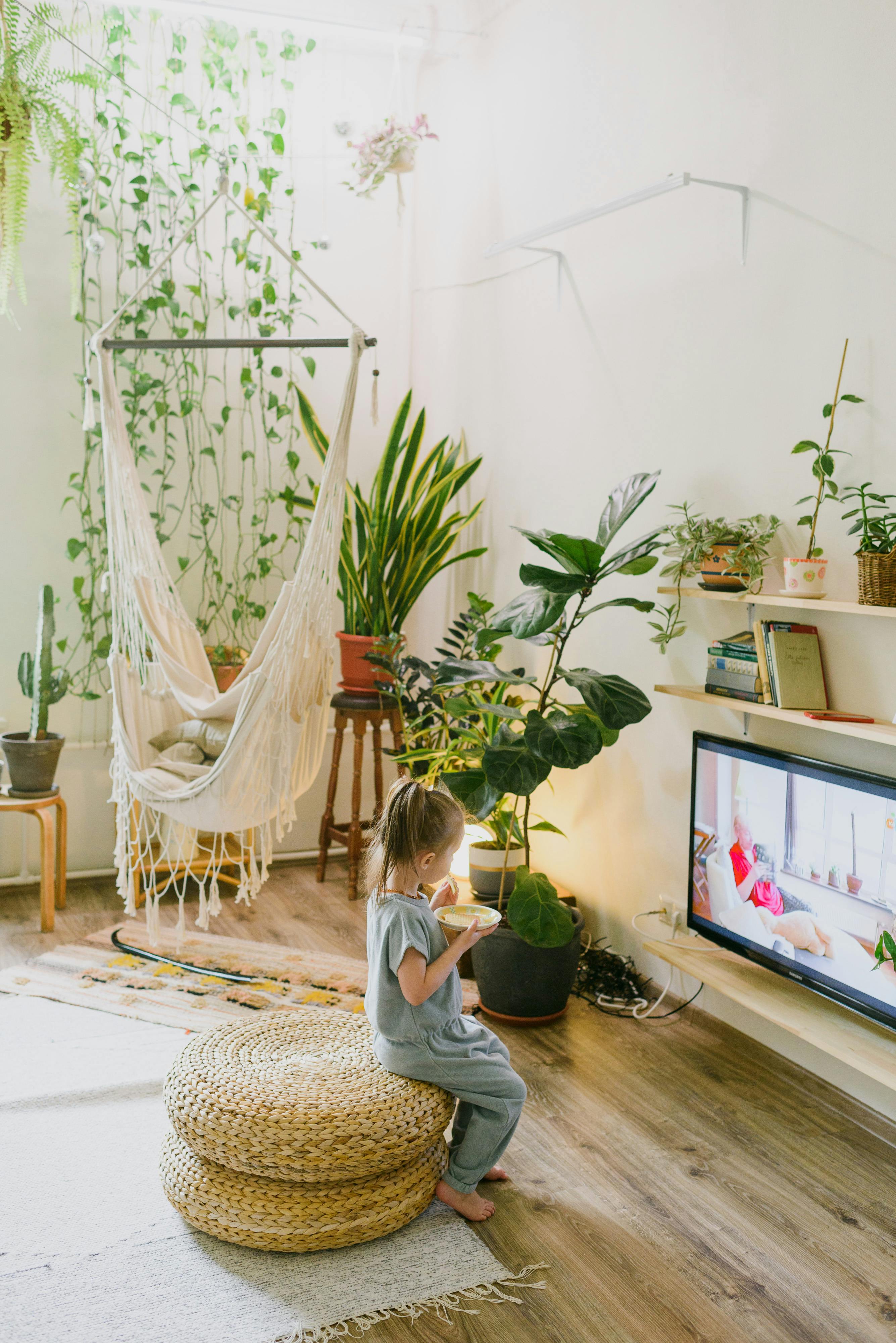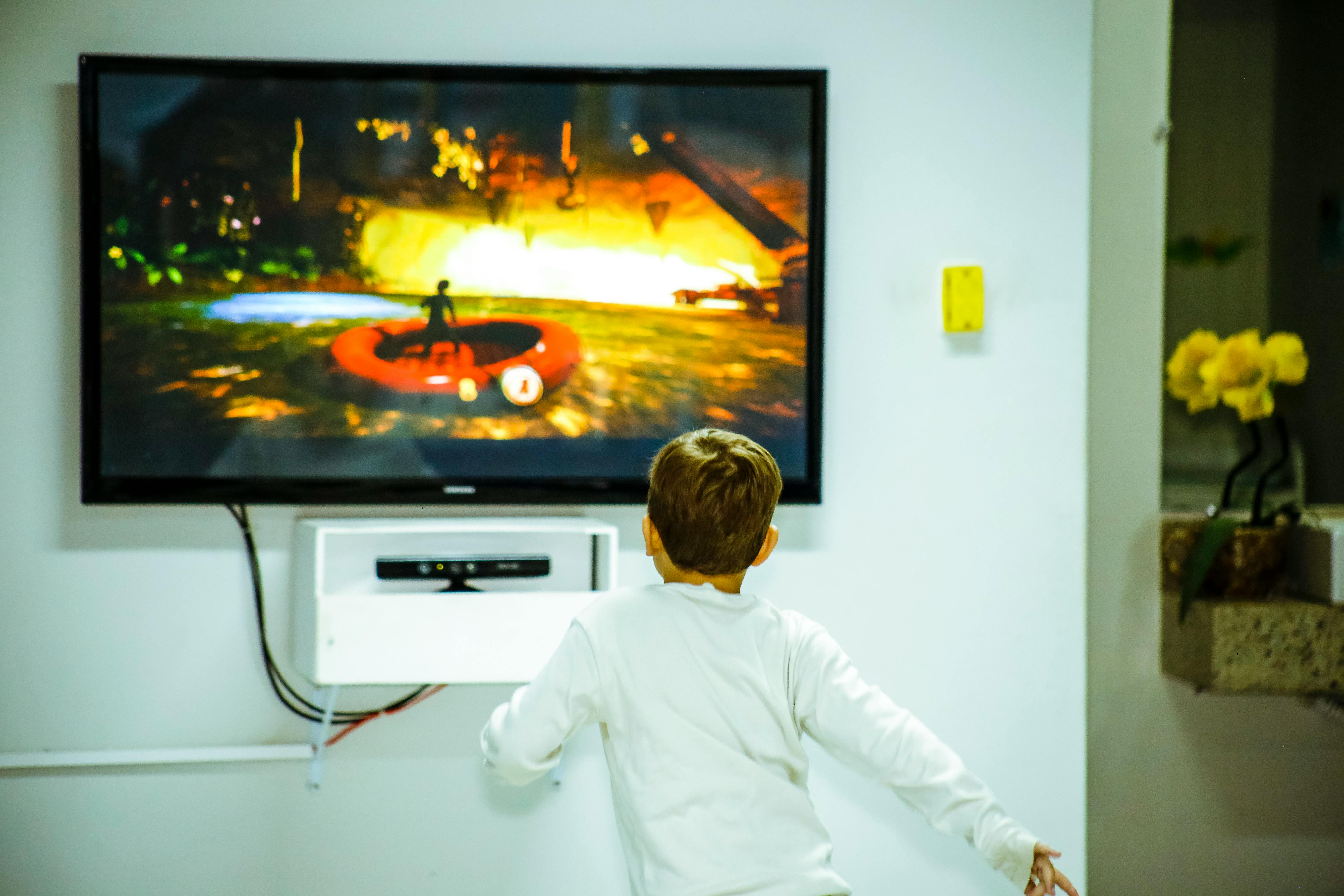


With about 75% of kids saying they want their own TV space, it’s not just about how much screen time they’re getting, but also when you decide to let them have that extra bit of independence.
Studies show that a big chunk of kids get their own TV between ages four and seven (33%), and another 21.6% between seven and eleven. That’s a lot of early TV ownership happening across Canadian households.
It’s really tied up with their overall well-being and how smoothly things run at home. As dads, we’re always trying to balance giving our kids some freedom while making sure they’re growing up healthy and happy.
In this article, I’ll break down the real pros and cons of letting your kids have a TV in their bedroom. We’ll look at what it means for their physical health, mental wellness, and the importance of keeping some parental control in the mix.
If you’re a dad trying to figure out what’s best for your family, stick around, let’s dig into the research and see what really matters when it comes to TVs in kids’ bedrooms.

Let’s get into why kids are so set on having a TV in their bedroom; there’s more to it than just wanting to watch cartoons all day.
Most kids start asking for their own TV pretty early, usually between four and seven years old. For them, having a TV is a big step toward feeling independent.
It’s their own little corner where they can chill out and not have to fight over the remote with everyone else. Sometimes they just want a spot to relax and have a say in what they watch.
Almost half of the kids who want a TV in their room say it helps them fall asleep. They like the background noise or their favourite shows to help them wind down at night.
And it’s not all cartoons; some kids use their TVs to learn new things, pick up another language, or watch shows that teach life lessons.
Sometimes giving your kid the old living room TV when you upgrade feels like a win-win. You get the new gadget, and they get their own screen.
Plus, for older kids, having their own TV can be a way to escape from younger siblings and have a little peace and quiet.
So, when your kid starts lobbying hard for a TV in their room, it’s usually a mix of wanting independence, needing a spot to call their own, and maybe even hoping to learn something new along the way.
It might seem like giving your kid a TV in their room is the secret to a peaceful house, but there are some real downsides worth thinking about.
Kids with TVs in their bedrooms are more likely to pick up some bad habits. We’re talking less physical activity, more snacking, and a higher chance of weight gain.
Plus, having a TV can mess with their sleep; those late-night shows or just the glow from the screen can make it harder for them to fall asleep and stay asleep. And it doesn’t stop there: more screen time has been linked to higher levels of stress, anxiety, and even feeling lonely or down.
A TV in the bedroom is a huge distraction. Homework and studying can take a back seat, and grades might start to slip. Plus, without you around to keep an eye on things, there’s a bigger risk they’ll stumble onto stuff that’s not really meant for their age group.
When everyone’s watching TV in their own rooms, family time takes a hit. Those little moments together, laughing at a show, chatting during commercials, start to disappear. And don’t forget, more screens mean higher energy bills and maybe even more money spent on upgrades and repairs.
Thinking about these cons can help you decide if a bedroom TV is really worth it for your family, or if it’s better to keep screen time a shared activity.
Even with all the worries, there are some real perks to letting your kid have a TV in their room, especially if you set some ground rules.

It’s not all cartoons and superhero movies; TVs can open up a whole world of documentaries, educational shows, and programs that teach about different cultures or even new languages.
When used in moderation, this kind of content can actually boost cognitive skills and even help with schoolwork.
Let’s be honest, having more than one TV in the house can cut down on a lot of arguments over what to watch. Sometimes, it’s just nice for everyone to have their own space.
Plus, if you pick a show to watch together, it can spark some good conversations and give you something fun to share.
The trick is to guide your kids toward the good stuff and set clear limits on screen time. That way, you get the benefits of having a TV in their room without all the downsides.
Let’s break down what the research actually says about the effects of having a TV in your kid’s bedroom, because it’s not just about what they’re watching, but how it’s shaping their health and development.
Higher BMI and Unhealthy Habits:
Multiple studies have shown that kids with a TV in their bedroom are more likely to have a higher BMI and unhealthy eating habits, which sets them up for weight gain and even obesity as they get older.
For example, a UK study found that having a TV in the bedroom at age 7 was linked to higher BMI and fat mass by age 11, especially for girls.
Kids who watch four or more hours of TV daily are also at greater risk for heart disease and diabetes, regardless of how active they are otherwise.
Sedentary Lifestyle Risks:
It’s not just about calories; watching TV encourages sitting for long stretches, which is tied to obesity, heart health issues, and diabetes. Chronic neck and back pain can also be caused by poor posture during screen use.
Sleep Disruption:
Having a TV in the bedroom can seriously mess with sleep. The blue light from screens and the temptation to watch “just one more episode” can lower melatonin, making it harder for kids to fall and stay asleep.
Kids with TVs in their rooms tend to get less sleep overall, which affects everything from mood to school performance.
How to Help:
Limiting screen time, encouraging physical activity, and keeping TVs out of bedrooms are proven ways to help kids maintain a healthy weight and better sleep.

Emotional and Behavioural Effects:
Kids with a TV in their bedroom at age four showed more emotional distress, depressive symptoms, and physical aggression by age 12, according to Canadian research.
These kids also tended to be less sociable and more likely to develop anxiety disorders as they grew up.
Cognitive Development and Academic Performance:
More screen time, especially over two hours a day, is linked to lower scores on thinking and language tests. Excessive TV (over seven hours) can even thin the brain’s cortex, which is key for critical thinking and reasoning.
Kids with TVs in their rooms also spend less time reading and doing homework, which can hurt their grades and learning over time.
Speech and Social Skills:
For younger kids, even two hours of TV a day can slow down speech development. Older children may pick up aggressive behaviours from what they watch, which can affect how they interact with others.
Family Connection:
When kids have TVs in their rooms, they spend less time with the family, missing out on those everyday chats and shared moments that help them grow emotionally.
Deciding when (or if) your child should have a TV in their bedroom is one of those parenting choices that depends on your kid and your family’s style. There’s no magic number, but there are some helpful guidelines and things to think about.
Most experts agree that children under 6 shouldn’t have a TV in their bedroom. At that age, they get way more out of active play, reading, and hanging out with family than zoning out in front of a screen.
For older kids, especially teenagers, it comes down to their maturity and ability to manage their own screen time. Teens are usually better at handling distractions and making smarter choices about when and what to watch.
When you’re making this call, think about your child’s maturity, general behaviour, and personality.
Letting your kid have a TV in their bedroom isn’t just about giving in to their wishes; it’s about weighing the perks of independence and learning against the risks to their health, sleep, and emotional well-being. There’s no perfect age, but moderation and parental involvement make all the difference.
Deciding on that bedroom TV is one of those classic parenting puzzles. It’s tempting to say yes for the peace, but I always remind myself it’s about more than just keeping everyone happy in the moment.
Our real job is to help our kids build healthy habits and learn how to make smart choices, whether that’s about screen time or anything else.
So, trust your gut, keep the conversations open, and remember: sometimes the best family moments happen when you’re all together (and yes, maybe even fighting over the remote). And don’t forget, a well-timed dad joke never hurts!
Disclosure: I may receive affiliate compensation for some of the links below at no cost to you if you decide to purchase a paid plan. You can read our affiliate disclosure in our privacy policy. This site is not intending to provide financial advice. This is for entertainment only.